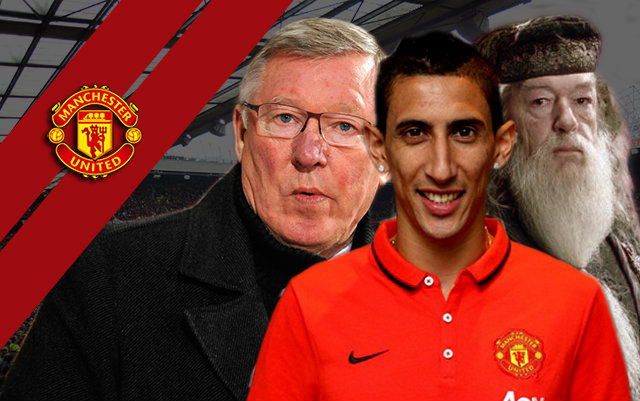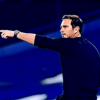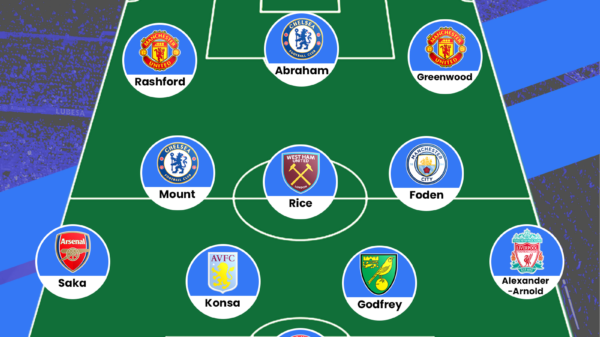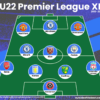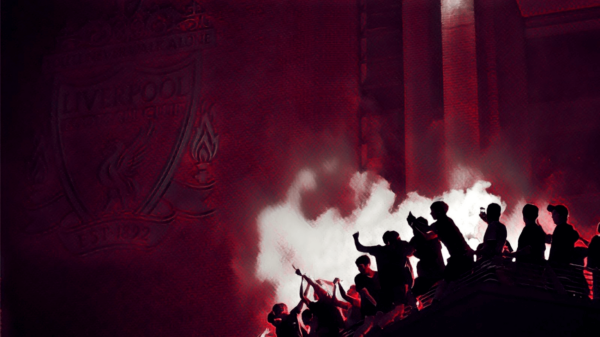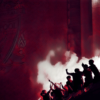Angel Di Maria signing, Ferguson’s mistakes, Van Gaal’s issues, United’s commercial appeal and Dumbledore (yes, really!), this article covers it all.
For a brief few seconds the morning after the night before, bird-song joyously guides the sun kissed day through your curtains and into your room. You’re not sure of what has gone before but you feel fine as you lie there motionless. Then, as you move to reach for a drink, the unwanted ton of second hand bricks hits you and sends you instantly into the foetal position. What the bloody hell happened last night? Let us now multiply this feeling by (you pick the number) and the answer still won’t equate to the gut retching nervous feeling Ed Woodward must have woken up to throughout the majority of last season’s weekend mornings.

Moyes: It wasn’t Woodward’s decision to hire the Scot. That criticism must lie mostly at the feet of Ferguson. Actually, no! A little bit of the blame has to go to Moyes, too. Was he so blind not to see his role in the story? He was only ever going to be a buffer between eras. Fergie’s shadow clung to every training ground cone and to every kitchen plate. He was in the offices, the changing rooms and the stands. Nobody was going to replace Ferguson and the great man himself knew it. It’s hard to synonymise the size of Ferguson’s presence but try to think Hogwarts without Dumbledore (God bless McGonagall, what a job she’s got; JK Rowling should think of doing a spin off surrounding McGonagall’s ill-fated reign) with Ferguson at United being measurably bigger.
Maybe Woodward knew it was going to be a disaster and had an inkling Moyes wouldn’t last. His backing of the man was half-hearted, with the only major signing being midfielder-cum-MMA fighter Fellaini from Everton (more renowned for his elbows than his feet). But Ferguson had left a terribly weak squad behind and no top manager in the world would risk their reputation by taking the job. Nobody saw it at the time, but Vidic and Ferdinand were through. Evra had lost his pace, the core of the squad was damaged and van Persie didn’t stand a chance with Moyes’ style of play.
But that’s done now. Moyes has played his role in all of this; only the future remains.
Yet perhaps that seventh place finish has damaged the mentality of the club more than initially feared. Money (the biggest motivation for the Glaziers) drives the club now, exemplified by the pointless tour of the United States this summer. Van Gaal had just arrived, a big name for a big club, and before he’d had a chance to say hello the club jetted off to the States with a cargo full of shirts to sell. He was already behind time this pre-season due to his obligation with The Netherlands and training is the single most important time of day for Van Gaal. He’s a coach first and these new players simply must understand his formations, style and transitions. Opening day versus Swansea was a result of Van Gaal being behind on time. Nevertheless, with emotional rivals Liverpool and Manchester City doing so well last season, Woodward and the boys certainly had to keep up. They did, didn’t they?
Well no, they didn’t. Van Gaal was against the tour and therein lays the first mistake of the season for United. They put business over football, which will perhaps be a reoccurring theme without Ferguson to protest. There are more examples of this theme: Chelsea and United brushed shoulders this summer for the signature of promising Englishman Luke Shaw from Southampton. In turn his value soared to £30m, making Mourinho scoff at the notion of such money being paid for a teenager (Mourinho doesn’t appreciate youth) with van Gaal later calling the youngster unfit and posing the question as to whether he wanted him at all. He’d surely prefer Blind of Ajax for less money, but this is a more conscious United, deep in a quest to preserve her ego.
For the same reason the club had to sign Basque midfielder Herrera after courting him for so long. Had he signed for, say, Man City, then it would be deemed a failure for the board. Another disaster must be averted with the club aiming to return to the summit of world football. And what will appease a global fanbase in these instantaneously-impatient times? A big named player, that’s what.
Cue Di Maria. What a great player, any team would love to have him, forget the price tag. European champions Real Madrid is a reflection of United, also having a rich brand to preserve. They are no fools in the transfer market, though, with the sale of Ozil to Arsenal for £40m looking like good business on their behalf. However, selling Di Maria (similar to United signing him) is not a wholly footballing decision but a business one. Florentino Perez has promised to give fans a team of Galactico’s and has invested in the extremely marketable James Rodriguez. The Colombian had a fine World Cup and saw his brand soar, a wave Real has chosen to ride. Nevertheless Di Maria is a more talented and versatile offensive player whom Ancelotti would be disappointed to see leave. It could be argued that Perez has sacrificed a better player for a more valuable one – time will tell.
Returning to United, several questions now surround Di Maria. Where he will fit in? Does the club need him? What now of Mata? Van Gaal, a renowned tactician, will find roles for both talented players with ease. But a touch of Hubris is felt with United splurging so much in the transfer market. Yes the squad left to Moyes was a weak one (without Woodward’s backing), not befitting Champions League elitism at all. However, many in the footballing world see United’s weaknesses in defence rather than attack. Two names linked to the club – Hummels and Blind – would have fitted the square hole more flawlessly. The club spending above and beyond on globally recognised names screams “we’re Man United, we do what we want”. It is yet to be seen, but has Woodward done what the club needs?
Written by Left Wing Soccer (@LeftWingSoccer).




















































